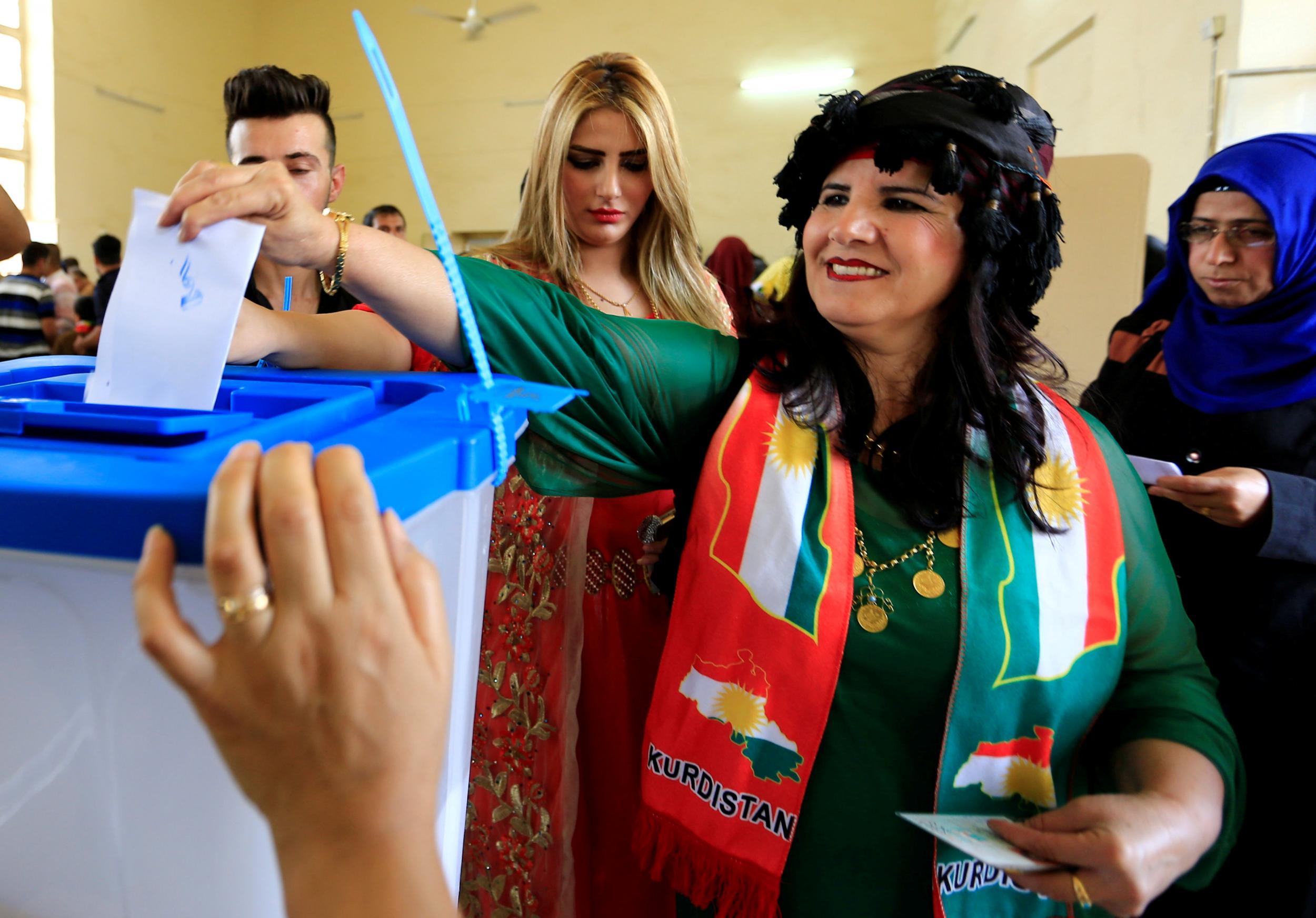Kurdish referendum: When will we know result? What will happen if they vote for independence?
Iraq’s Kurds take to the polls today to vote in support of independence from Baghdad in a referendum which could have far-reaching consequences for more than just the Kurdish people

Your support helps us to tell the story
From reproductive rights to climate change to Big Tech, The Independent is on the ground when the story is developing. Whether it's investigating the financials of Elon Musk's pro-Trump PAC or producing our latest documentary, 'The A Word', which shines a light on the American women fighting for reproductive rights, we know how important it is to parse out the facts from the messaging.
At such a critical moment in US history, we need reporters on the ground. Your donation allows us to keep sending journalists to speak to both sides of the story.
The Independent is trusted by Americans across the entire political spectrum. And unlike many other quality news outlets, we choose not to lock Americans out of our reporting and analysis with paywalls. We believe quality journalism should be available to everyone, paid for by those who can afford it.
Your support makes all the difference.The Kurdish people are the the largest stateless ethnic group in the world, their 30-million-strong population scattered across modern-day Turkey, Iraq, Iran and Syria since the Ottoman Empire collapsed a century ago.
Iraq’s Kurds, who have enjoyed increased political representation in the country over the last three decades, have for the first time taken the step of calling for a referendum on support for independence from Baghdad.
Polls opened at 8am Monday, although some people were so eager to cast their vote queuing began on Sunday night.
Who is voting?
Northern Iraq is administered by the Kurdish Regional Government (KRG), created in 1992. Its 8.4 million strong population is eligible to vote, as well as Kurdish Iraqi nationals living overseas.
Controversially, areas in which the referendum is being held include towns which the Kurds did not necessarily have a large presence in before their forces advanced to defeat Isis in the last two years. Some of these - such as Kirkuk - are not only home to many Arabs, but also rich in oil.
What happens if it’s a ‘yes’?
It’s expected the referendum will result in a ‘yes’ to support for independence - but it’s important to note that the vote has not been officially recognised by Baghdad, and it does not actually bind KRG President Masoud Barzani into taking any action, either.
What the Kurds hope is that a ‘yes’ will give them a greater mandate in negotiations with Baghdad, as the support of international powers they have gained during the fight against Isis begins to wane.
The central government of Iraq has strongly opposed the referendum all along. Last week, the Supreme Court ordered that the vote be delayed - but the KRG have ignored all of Baghdad’s pleas.
Why is Baghdad so against Kurdish independence?
Prime Minister Haider al-Abadi’s government is worried that the vote could inflame tensions in the volatile country, which has already faced massive recent destabilisation thanks to Isis.
Baghdad also sees the referendum as a Kurdish attempt to wrest away control of Iraq’s northern oil fields.
The US and UK repeatedly asked the KRG to delay the referendum, citing worries that a falling out between Irbil and Baghdad will negatively impact the fight to destroy Isis.
So what impact will the result have?
Results are expected by 8pm on Tuesday, 24 hours after the polls shut. In real terms, nothing immediate will happen in the event of a ‘yes’ vote - although Turkish President Recep Tayyip Erdogan has threatened to both close the border and cut off the KRG’s oil exports, warning that Turkey is “prepared to act militarily” if the vote threatens security.
Iraq’s neighbour Iran has also vehemently voiced opposition to the referendum, which it says undermines the democratic process. Like Ankara, Tehran is fearful that a ‘yes’ result will encourage the Kurdish independence movements within their own states.
In Syria, the self-declared autonomous Kurdish Northern Syrian administration hopes that their Iraqi kin will blaze a trail in dealing with Baghdad they can emulate in dealings with President Bashar al-Assad’s government as the Syrian civil war winds down.
Join our commenting forum
Join thought-provoking conversations, follow other Independent readers and see their replies
Comments